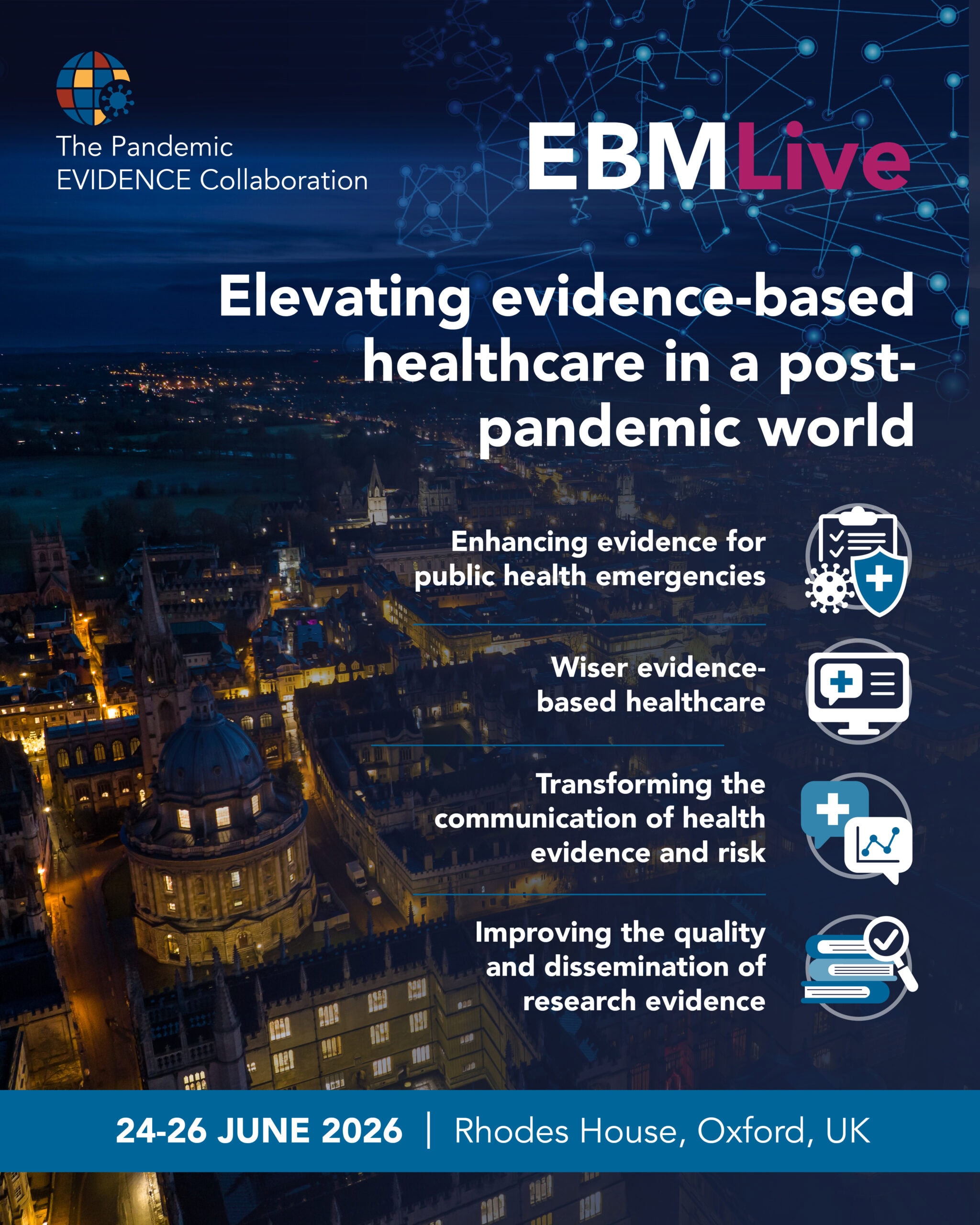2026 International Conference, Oxford, 24-26 June
The Pandemic Evidence Collaboration in partnership with EBMLive presents
Conference Themes include but are not exclusive to:
Enhancing evidence for public health emergencies
- Supporting the generation of high-quality evidence for public health emergencies.
- Fostering effective and efficient knowledge exchange for global public health emergencies.
- Inspiring policymakers and health system leaders to incorporate high-quality evidence into decision-making.
- Increasing public understanding of the benefits and harms of the use of NPIs during global health care emergencies in different environments.
Wiser evidence-based healthcare
- Addressing the issue of overdiagnosis and the effective use of diagnostic tests.
- Promoting value-based healthcare through identifying tests, procedures, and interventions that provide little or no net benefit or cause more harm than good.
- Production and translation of high-quality research evidence to support effective healthcare.
- Promoting sustainable, affordable healthcare that incudes
-
- Clinical sustainability – care that improves outcomes and avoids harm or waste.
- Economic sustainability – care that is cost-effective and financially viable for patients and systems.
- Environmental sustainability – reducing the carbon footprint, waste, and resource use of healthcare itself
Transforming the communication of health evidence and risk
- Effective communications through the media and social media for better understanding and use of evidence.
- How can patients, clinicians and policy-makers better understand and use evidence.
- Educating professionals, policy makers and the public to make better informed choices.
- Increasing healthcare practitioners’ awareness of evidence-based medicine and its role in effective healthcare.
Improving the quality and dissemination of research evidence
- Ensuring evidence is relevant, accessible and transparent – tackling issues such as publication bias, selective reporting and limited external validity trials.
- Reducing questionable research practices and conflicts of interest.
- Assessing the role of artificial intelligence in developing high-quality research evidence.
- Reducing waste in research that incudes
- Improving Study Design and Methods
- Addressing bias and confounding in research
- Transparency and reporting
- Industry and commercial influence
